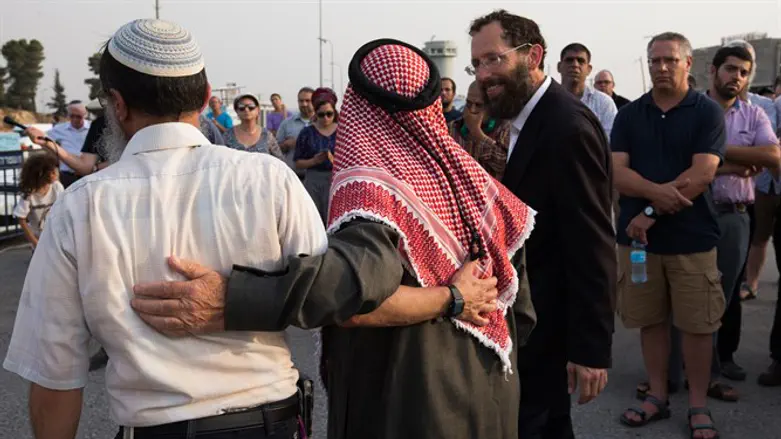
A comprehensive study of Israel's Muslim population found that the birthrate has begun to rise again, reversing a steady 16-year decline.
According to the Central Bureau of Statistics survey, the total fertility rate of Muslim women rose to 3.3, following a prolonged decline in fertility rates, from 4.74 in 2000 and 3.29 in 2016.
In addition, the Moslem population was estimated at 1.562 million, close to 18% of Israel's total population. Israel also saw an increase of 38,000 residents from the end of 2016.
The annual growth rate of the Muslim population in 2017 was 2.5%, which is identical to the last three years. The annual growth rate of the Muslim population in the past two decades has been declining from 3.8% to 2.5%.
However, the Muslim sector has the highest annual growth rate in Israel, dwarfing the 1.7% Jewish growth rate and the 2.2% Christian growth rate.
About half of the Moslem population is concentrated in the north of the country, with 35.6% in the Galilee and another 13.8% calling the Haifa District home. Another 21.8% live in the Jerusalem District. The rest live in central Israel (11.0%) and in the southern region (16.6%). Only 1.1% live in the Tel Aviv area.
At 329,000, Jerusalem has the largest concentration of Moslem residents, with the capital city possessing 21% of all Israeli Muslims. The second largest Muslim community is the Bedouin city of Rahat, with 66,600 Muslims, making up 99.8 percent of the city's population. Other cities with a large concentration of Muslims are Nazareth and Umm al-Fahm with 54,300 and 54,200.